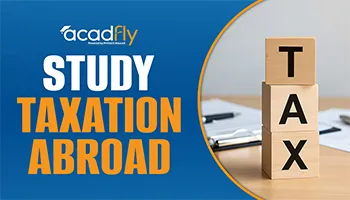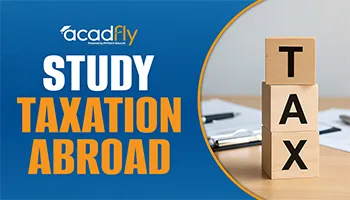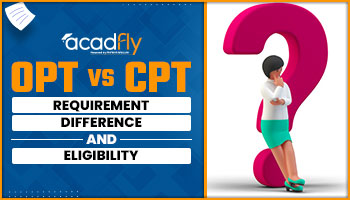


Are you considering advancing your education in the field of taxation? Studying taxation abroad can be an excellent way to gain a global perspective, access advanced academic resources, and enhance your career prospects. This guide will provide you with everything you need to know about studying taxation abroad, from the benefits and top destinations to the admission requirements and costs involved. By the end of this article, you’ll have a comprehensive understanding of how to pursue a successful career in taxation by studying overseas.
Why Study Taxation Abroad?
Studying taxation abroad offers several unique advantages that can significantly impact your career and personal growth. From understanding international tax laws to networking with global professionals, the benefits are numerous.
Benefits of Studying Taxation Abroad
-
Global Perspective: Gain insights into international tax systems, regulations, and practices, which is invaluable in today's interconnected world.
-
Advanced Curriculum: Access cutting-edge coursework and resources that may not be available in your home country.
-
Career Opportunities: Enhance your resume with an international degree, making you a more attractive candidate to employers.
-
Networking: Build a network of peers, professors, and professionals from around the world.
-
Cultural Experience: Immerse yourself in a new culture, enhancing your adaptability and broadening your horizons.
Top Destinations to Study Taxation Abroad
Choosing the right country to study taxation abroad is crucial for maximizing your educational and professional opportunities. Here are some of the top destinations known for their excellent taxation programs:
United States
The United States is renowned for its top-tier business schools and law schools that offer specialized programs in taxation. Universities like New York University (NYU), Georgetown University, and the University of Florida provide robust programs in tax law and accounting.
United Kingdom
The UK boasts several prestigious universities with strong taxation programs, such as the London School of Economics (LSE), the University of Oxford, and the University of Cambridge. These institutions offer comprehensive courses that cover both domestic and international taxation.
Australia
Australia is a popular destination for studying taxation, with universities like the University of Melbourne, the University of Sydney, and Monash University offering excellent programs in tax law and tax accounting.
Canada
Canada’s universities are well-regarded for their business and law programs. Schools such as the University of Toronto, York University, and McGill University offer highly respected specialized programs in taxation.
Netherlands
The Netherlands offers some of the best programs in Europe for studying taxation. Institutions like the University of Amsterdam and Maastricht University provide in-depth courses in international tax law and tax management.
|
Country |
Top Universities |
|
United States |
New York University, Georgetown University, University of Florida |
|
United Kingdom |
London School of Economics, University of Oxford, University of Cambridge |
|
Australia |
University of Melbourne, University of Sydney, Monash University |
|
Canada |
University of Toronto, York University, McGill University |
|
Netherlands |
University of Amsterdam, Maastricht University |
Admission Requirements for Taxation Programs Abroad
Admission requirements for studying taxation abroad can vary based on the country and institution. However, there are some common prerequisites that you should be aware of.
Academic Qualifications
Most programs require a bachelor’s degree in a related field such as business, law, or accounting. Some programs may also require professional experience in taxation or accounting.
Language Proficiency
If the program is taught in English, you will need to provide proof of English proficiency through tests like TOEFL or IELTS. Other languages may have similar requirements based on the country.
Application Documents
Typical application documents include academic transcripts, letters of recommendation, a statement of purpose, and a resume. Highlight your academic achievements, relevant experience, and motivation for studying taxation abroad.
Cost of Studying Taxation Abroad
Understanding the cost of studying taxation abroad is crucial for financial planning. Expenses can vary widely based on the country, university, and lifestyle.
Tuition Fees
Tuition fees for taxation programs can range from $20,000 to $50,000 per year. Countries like Germany may offer lower tuition fees or even free education for international students.
Cost of Living
The cost of living varies by country and city. For example, living expenses in cities like New York, London, and Sydney are higher compared to other locations. Budget for accommodation, food, transportation, and other personal expenses.
Scholarships and Financial Aid
Many universities offer scholarships and financial aid to international students. Research and apply for these opportunities to help reduce the cost of your education.
|
Country |
Average Tuition Fees (per year) |
Average Cost of Living (per year) |
|
United States |
$30,000 - $50,000 |
$20,000 - $30,000 |
|
United Kingdom |
£20,000 - £40,000 |
£15,000 - £25,000 |
|
Australia |
AUD 25,000 - AUD 45,000 |
AUD 20,000 - AUD 30,000 |
|
Canada |
CAD 20,000 - CAD 40,000 |
CAD 15,000 - CAD 25,000 |
|
Netherlands |
€10,000 - €20,000 |
€10,000 - €20,000 |
Preparing for Your Study Abroad Journey
Preparing to study taxation abroad involves several important steps. Here’s a checklist to help you get started:
Research and Apply
Thoroughly research various taxation programs and identify those that align with your career goals. Pay attention to application deadlines and requirements.
Secure Funding
Explore scholarship opportunities, financial aid options, and student loans to fund your education. Ensure you have a solid financial plan in place.
Obtain Necessary Documentation
Prepare your passport, apply for a student visa, and gather all necessary documents, including your admission letter and financial proof.
Plan Your Travel and Accommodation
Book your flights, arrange for accommodation, and familiarize yourself with your destination country. Join online forums or groups for international students to gain insights and support.
Living and Studying Abroad
Living and studying abroad can be a transformative experience. Here are some tips to help you make the most of your time:
Embrace the Culture
Immerse yourself in the local culture, try new foods, and participate in cultural events. Building connections with locals and fellow international students can enhance your experience.
Stay Organized
Keep track of important dates, assignments, and exams. Use planners or digital tools to manage your time effectively.
Seek Support
Many universities offer support services for international students, including academic advising, counseling, and career services. Don’t hesitate to seek help if needed.
Career Opportunities After Studying Taxation Abroad
Studying taxation abroad can open doors to a variety of exciting career opportunities. Here are some potential career paths:
Tax Consultant
Tax consultants help clients with tax planning, compliance, and filing. They provide advice on tax strategies and ensure that clients comply with tax regulations.
Tax Manager
Tax managers oversee an organization’s tax compliance and reporting. They develop tax strategies, prepare tax returns, and liaise with tax authorities.
Tax Accountant
Tax accountants prepare tax returns, ensure compliance with tax laws, and advise clients on tax planning. They work in public accounting firms, corporations, or as independent consultants.
International Tax Advisor
International tax advisors specialize in cross-border tax issues. They provide advice on international tax planning, compliance, and structuring to multinational corporations.
Tax Attorney
Tax attorneys represent clients in tax disputes and provide legal advice on tax matters. They work in law firms, corporate legal departments, or government agencies.
|
Career Path |
Description |
|
Tax Consultant |
Help clients with tax planning, compliance, and filing. |
|
Tax Manager |
Oversee an organization’s tax compliance and reporting. |
|
Tax Accountant |
Prepare tax returns, ensure compliance with tax laws, and advise on tax planning. |
|
International Tax Advisor |
Specialize in cross-border tax issues and provide advice to multinational corporations. |
|
Tax Attorney |
Represent clients in tax disputes and provide legal advice on tax matters. |
Study Taxation Abroad FAQs
1. What are the benefits of studying taxation abroad?
2. Which countries are best for studying taxation?
3. What are the admission requirements for taxation programs abroad?
4. How much does it cost to study taxation abroad?
5. What career opportunities are available after studying taxation abroad?










